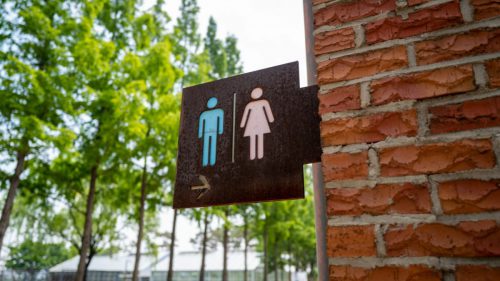

BreakPoint
Today’s BreakPoint offer: “Clash of Worldviews: Defending the Truth”—Chuck Colson’s speech on Christianity and Islam.
Niall Ferguson, “Insanity on a Global Scale,” Los Angeles Times, 25 September 2006.
John Hughes, “Don’t Reward Ahmadinejad or Chavez for Their UN Tirades,” Christian Science Monitor, 27 September 2006.
Joshua Kurlantzick, “Crude Awakening: The Coming Resource War,” New Republic, 25 September 2006.
BreakPoint Commentary No. 060814, “Preparing for the Mahdi: What’s Really Scary about Iran’s Nuclear Program.”
BreakPoint Commentary No. 060919, “Proving His Point: The Pope’s Speech.”
It’s a Mad, Mad World
Imagine an American president addressing the United Nations and concluding his remarks by praying that God would hasten Christ’s return and unleash the apocalypse. What do you suppose public opinion would be? Well, something even scarier actually happened at the UN last week, and the world said . . . nothing. That’s because the president in question was Mahmoud Ahmadinejad of Iran. At the end of his September 21 address to the General Assembly, he prayed that Allah would send “the perfect human being promised to all by you.” That “perfect human being” Ahmadinejad prayed for was the Mahdi, a Shiite messianic figure. What made the prayer so scary was that, in Shiite eschatology, the Mahdi’s return will be preceded by an apocalypse that leaves much of the world dead. Since Ahmadinejad isn’t some nutcase in a backwoods cabin but, rather, the president of an oil-rich nation actively pursuing nuclear weapons, his prayer should have sent shivers down spines. What we got instead is polite applause and business-as-usual. The response to a speech by Venezuelan president Hugo Chavez was even worse: After Chavez called President Bush “the devil” and joked about smelling sulfur left over from Bush’s appearance two days before, delegates broke into applause and laughter. Now, President Bush doesn’t need me or anyone else to defend him, but the response to Chavez and Ahmadinejad, both inside and outside the UN, was appalling. It’s more evidence that historian Niall Ferguson is right when he says that “it’s a mad world.” Ferguson, who teaches at Harvard, compared what happened at the UN to a “university faculty meeting.” “Extravagant, long-winded denunciations of the president is what we’ve come to expect from professors,” not politicians. The madness is a lot more than rhetorical, however: Ferguson cited the coup in Thailand, rioting in Hungary, and the recent assassination of the deputy chairman of the Russian central bank. Add to this Islam’s violent response to the Pope’s remarks in Regensburg, and the last thing the world needs to do is encourage an apocalyptic Holocaust-denier and a Fidel Castro-wannabe. Yet that’s exactly what happened. To his credit, President Bush has shown remarkable restraint. That’s good because somebody needs to be the adult. While we all wish that there had never been a September 11 and that history, as some intellectuals in 1990s proclaimed, was over, we didn’t get what we wanted. As the events of the past few weeks show us, we live in an incredibly dangerous world. This makes what happened at the UN last week and the silence in its aftermath so shocking. We’re in a clash of civilizations being waged by people, Islamo-fascists, who really do want to destroy us, no matter how much we prefer to think otherwise. What’s more, as the New Republic recently noted, an “alliance of authoritarian regimes” is using oil as a weapon in its efforts to stop the spread of democracy around the world. Christians, who should understand the religious and cultural dimensions of this threat, need to help our neighbors understand the volatile world we live in—and the dangers facing Western civilization itself.
| For Further Reading and Information |
09/29/06















